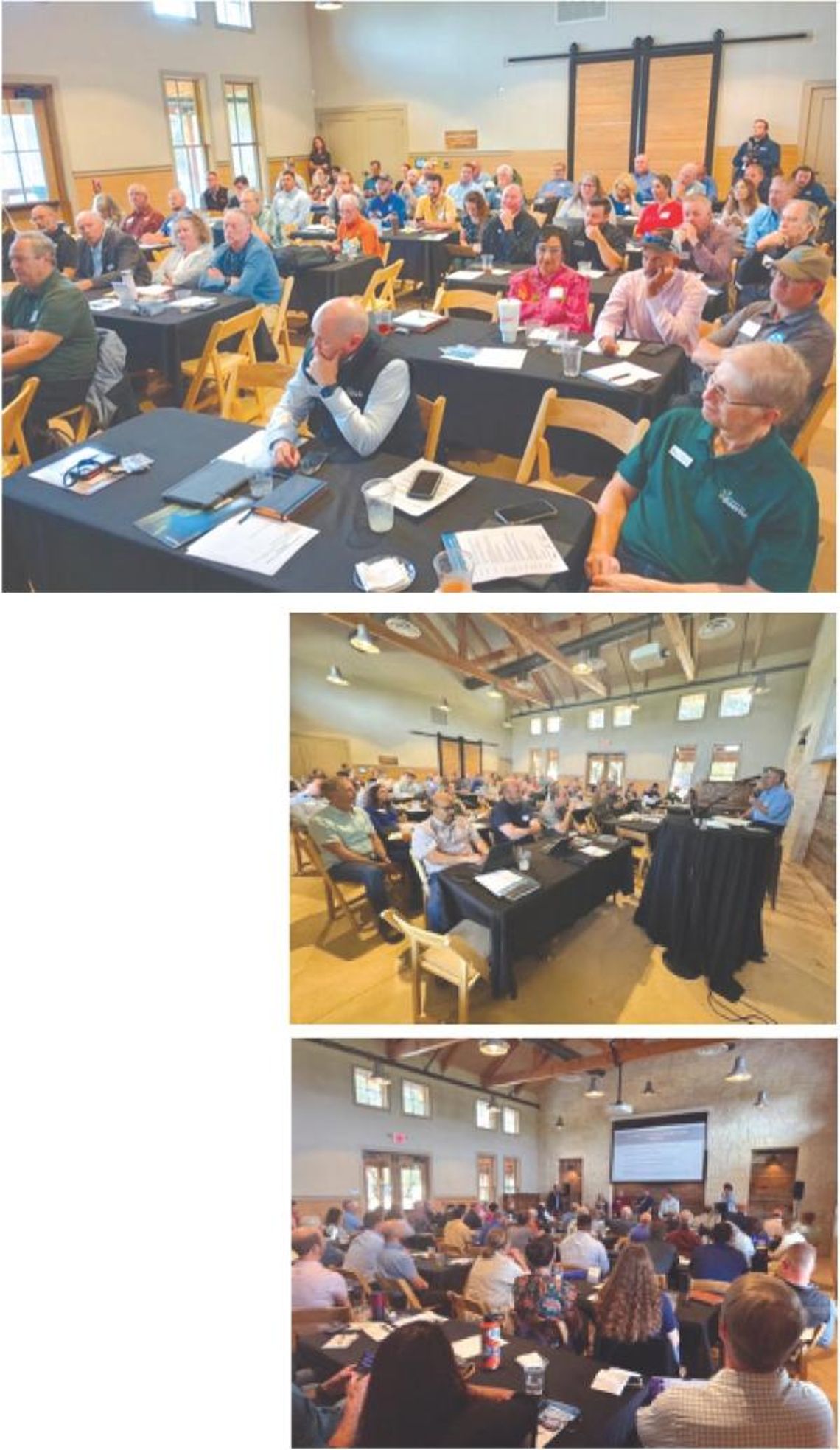The first-ever 'One Water in the Texas Hill Country' conference, a landmark event dedicated to sustainable water practices and conservation in the picturesque Texas Hill Country, was held in Boerne on Thursday, Oct. 26.
The conference, organized in partnership between the Hill Country Alliance, the city of Boerne and the Cibolo Center for Conservation, brought together over 70 participants from across the Hill Country, including county commissioners, groundwater conservation district personnel and local officials representing 15 cities in the region.
“Representatives of local governments and other entities are stewards of our communities' most vital resource: water. It is our collective responsibility to craft innovative, forward-thinking solutions that not only meet our immediate needs but also safeguard the future for generations to come,” opened Boerne City Manager Ben Thatcher.
The Hill Country is one of the fastest growing regions in the country, and despite the recent rains, most of the region remains in extreme drought.
“These dual pressures of growth and drought call for innovative solutions to managing our limited, precious water supplies. A whole category of these solutions fall under the banner of the One Water approach to water management,” said Maris a Bruno, Water Program Manager at the Hill Country Alliance.
One Water, as defined by Jenna Walker, director of Watershed Services at the Meadows Center for Water and the Environment at Texas State University, is an approach to water management that considers all water, from rainwater to wastewater, stormwater and drinking water, as potential supply to be managed collectively. A One Water approach considers the combined benefits to economies, community and environment when managing water.
The city of Boerne provided a case study for this kind of holistic water management approach during a panel discussion featuring Kendall County Commissioner Andra Wisian, Boerne’s Utilities Director Mike Mann and Director of Engineering Jeff Carrol and Dr. Troy Dorman from Halff. The panel was moderated by Ben Eldredge, board member of the Cow Creek GCD and Vice President of Conservation at the Cibolo Center for Conservation.
Boerne and Kendall County have each made a series of policy decisions to preserve and protect their aquifers. These One Water solutions include a low impact development ordinance focused on filtering stormwater and a stream setbacks policy that protects the ecosystem services provided by healthy streamsides, as well as a recent decision by the county and the local groundwater conservation district to raise the minimum lot size for a private exempt well to 10 acres. Boerne also maintains a “purple pipe” system that delivers treated wastewater to the Esperanza Development for their irrigation needs. These policy decisions have the combined effect of reducing demand on groundwater for potable use and recharging the aquifers that provide the region’s water supply.
Another potential way to reduce pressure on water supplies is by integrating water conservation and reuse into the designs of buildings. As explained by Sharlene Leurig, CEO of Texas Water Trade, buildings have the potential to collect large amounts of water through the capture of A/C condensate and rainwater. This water can be used for non-potable needs like toilet flushing and irrigation, significantly reducing demand on potable supplies.
One building that uses these techniques is Blue Hole Primary School in Wimberley, which in its first year used 50% less potable water than neighboring Jacob’s Well Elementary — and paid 50% less, too. Wimberley Mayor Gina Fulkerson and Nick Dornak of Doucet Engineering discussed the history and success of Blue Hole Primary School, the first 'One Water School” in the Hill Country.
“Blue Hole and Cypress Creek are the heart of Wimberley and protecting them is important for our community and economy,” said Fulkerson.
'The residents of Wimberley were behind the project,' Dornak added, 'You've got to have the community behind you if you want these projects to work and last.'
In nearby New Braunfels, the city, New Braunfels Utilities, and the Guadalupe-River Authority are working together in an initiative called “One Water New Braunfels” to make sure integrated water management is considered in every planning decision.
For other communities wanting to take the next step with One Water, the Hill Country Alliance offered a template for a One Water Resolution that encourages city staff to consider this kind of integrated water management in new projects.
“Hill Country city and county officials are in a position to take the lead when it comes to innovative water projects because they’re thinking about the full lifetime of a facility or development and the financial and natural resource impacts it will have on the community, not just the upfront costs of building.” says Hill Country Alliance Program Director, Cliff Kaplan. “We hope this resolution and the One Water conference itself will help leaders across the region put forwardthinking One Water projects on the ground in their communities.”
As the Hill Country grapples with the challenges of rapid development, these discussions and insights will undoubtedly pave the way for a more resilient and sustainable future.
To learn more about the One Water Conference or One Water Resolution, contact [email protected].
The Hill Country Alliance is a nonprofit organization, bringing together a diverse coalition of partners to preserve the open spaces, starry night skies, clean and abundant waters, and unique character of the Texas Hill Country. Visit hillcountryalliance. org for more.
.png)












